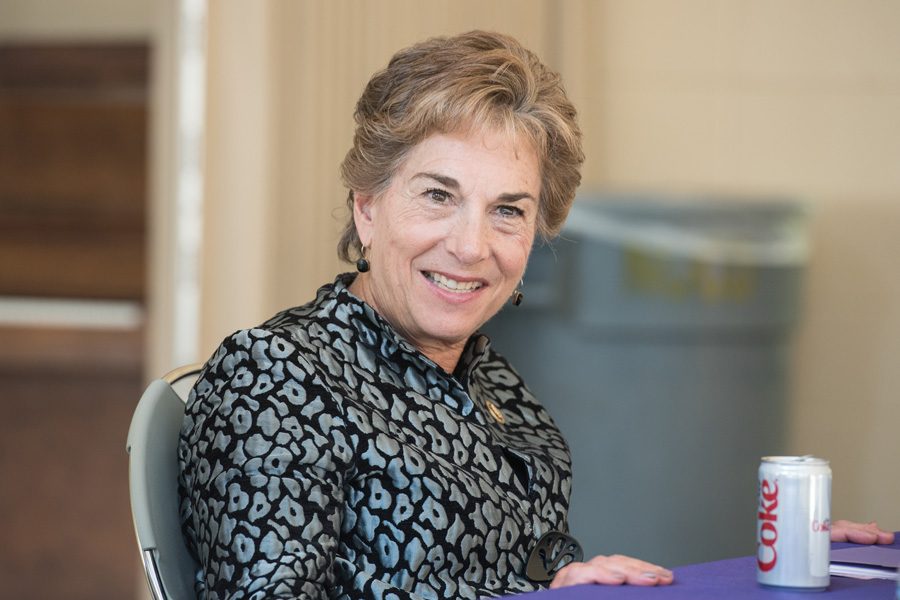Schakowsky introduces bill to increase tax on wealthy
Daily file photo by Colin Boyle
U.S. Rep. Jan Schakowsky (D-Ill.) at an event in October. Schakowsky introduced a bill last week to increase taxes on higher income brackets.
January 29, 2017
A new bill introduced by Rep. Jan Schakowsky (D-Ill.) in Congress would create new tax brackets for higher incomes nationwide.
The bill has the potential to raise over $800 billion in the next decade, aiming to lower the national deficit and provide funding for additional programs. The bill calls for a 45 percent tax rate to be imposed on anyone with a yearly income over $1 million, and an income tax rate of nearly 50 percent for those making over $1 billion annually. No additional taxes on the middle or working class are included.
Schakowsky said in a statement that as a result of the current tax bracket system, an individual who makes $418,401,000 is paying the same tax rate as someone who earns $418,401.
“Today, many Americans feel like the economy isn’t working for them, and that the rules are rigged,” Schakowsky said in a statement. “When it comes to the tax code, they’re right. GDP has never been higher – but almost all of that growth has gone to the very richest.”
With a Republican-held Congress and indications by the Trump administration to cut taxes on the wealthy, it seems unlikely that a bill like this will pass, said Richard Phillips, a senior policy analyst for Citizens for Tax Justice, who supports the bill.
However, Phillips told The Daily that Schakowsky’s bill articulates important principles that Democrats want to keep at the forefront of debate over tax reform.
Phillips said taxing the rich is one of the most effective ways to raise revenue. Public opinion favors a tax on the wealthy, he said. According to a Gallup poll from 2016, over 60 percent of Americans believe the wealthy pay too little in taxes.
“We think there are a lot of ways to raise revenue from the rich and this is one of the best ways to do it,” Phillips said. “Right now in the country we are facing income inequality and a revenue gap. For us, increasing taxes on the rich is one of these policies that really gets at both of these problems.”
One of those opposing the bill is Jared Labell, executive director of the conservative advocacy group Taxpayers United of America, who said taxing the rich will end up hurting the entire economy. The American public already feels overtaxed and has little trust in the government to use taxpayer dollars effectively, he said.
Labell said the government should focus on cutting its spending. The easiest way to encourage social mobility, Labell said, is to keep money in the pockets of Americans.
“At a time when the public is pretty upset with government leaders both at the federal and state level, the idea of taking more money from the private sector and giving it to the government is not going to go over very well,” he said.
Schakowsky said her goal is to generate enough money to help grow the middle class. Extra income from increased taxation on higher income earners will give the government revenue to keep up with programs such as Medicare and Medicaid, she said.
“The revenue from the Fairness in Taxation Act could be injected directly back into the economy by funding federal priorities that will strengthen our communities and grow the middle class,” Schakowsky said in the statement.
Email: [email protected]
Twitter: @samkrevlin












